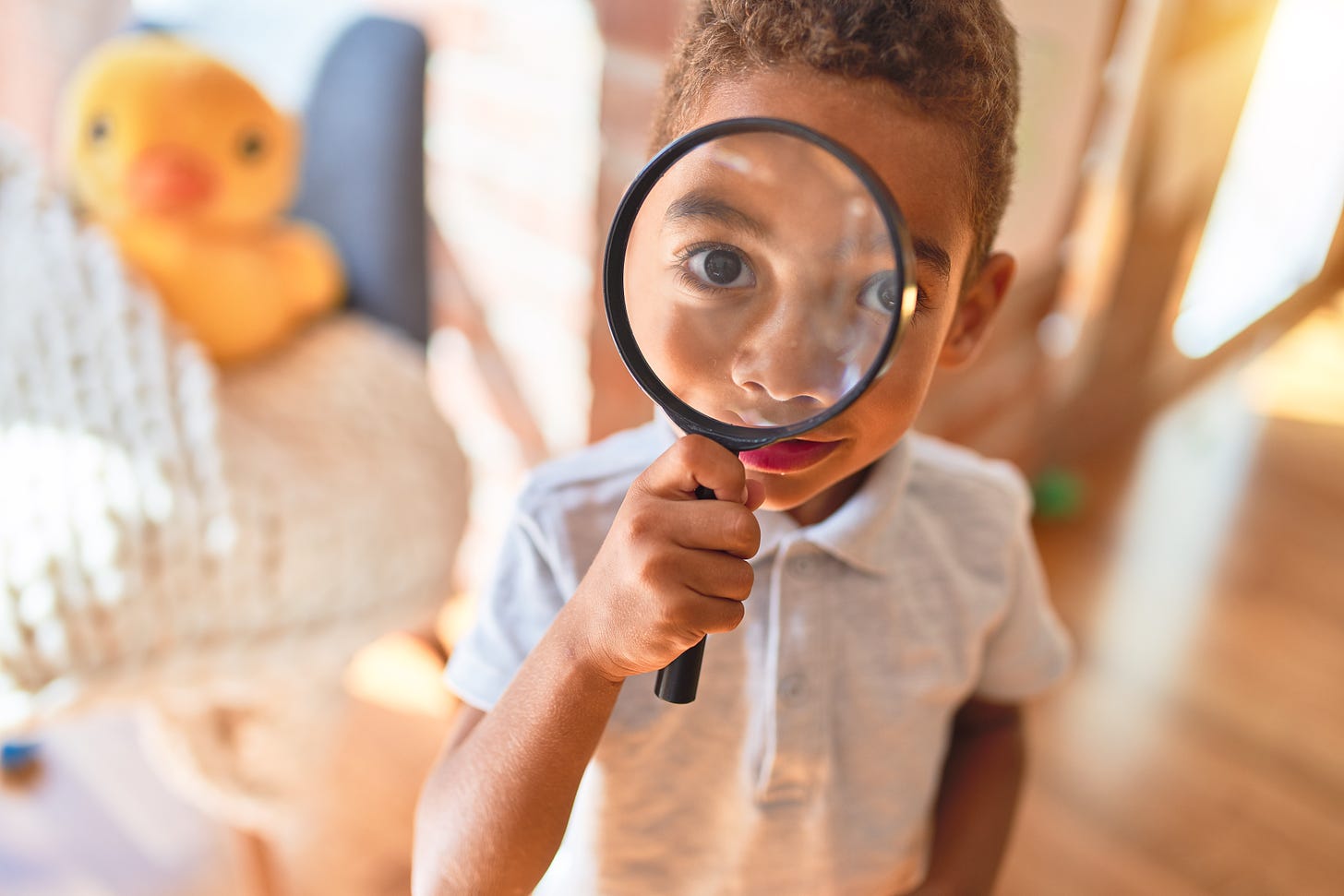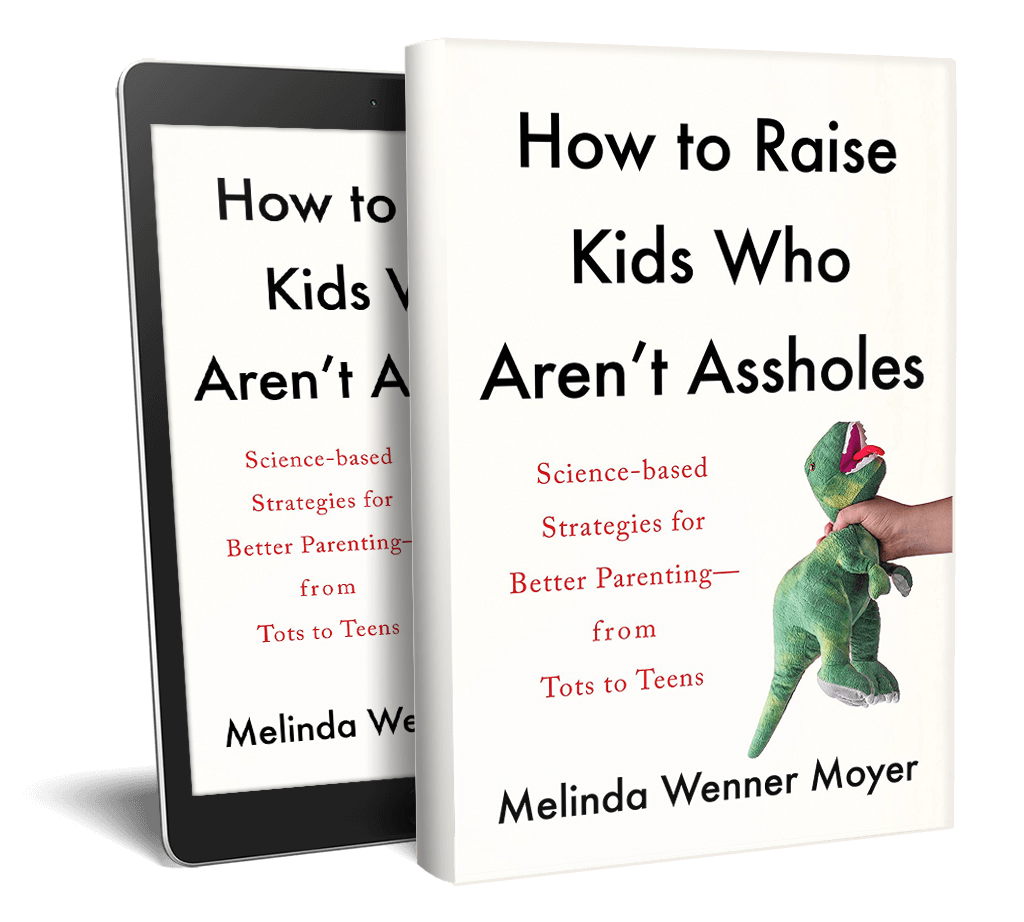Greetings, everyone, and a warm welcome my new subscribers — there are now more than 17,000 of you!!! — who I suspect are here thanks to Ryan Holiday and his podcast The Daily Stoic. I was a guest on the podcast last week, and we talked about so many things (more on our conversation in a minute).
For those of you who are new here, I’m first going to introduce myself and explain why I write this newsletter.
My name is Melinda Wenner Moyer, and I’ve been a science journalist for 16 years. I have a background in molecular biology and have written about immunology, neuroscience and infectious disease for publications such as Nature, Scientific American and The New York Times. As time has passed, I have grown more and more drawn to social science as well. I’ve recently dug deeply into gun violence, military sexual assault culture, and medical gaslighting.
I have two kids — a 12-year-old son and a 9-year-old daughter. Soon after I had them, I realized that parenting is a social science, too: that there is tons of research on parenting and child development, yet little of it has been covered in the mainstream media. In 2012, I started writing a science-based parenting column for Slate to bring some of this research to light.
Over the years, I’ve grown increasingly concerned about the messages the world has been sending my kids — all kids — about who they should aspire to be and what they can expect from those around them. We know from research that children learn what kind of behavior is acceptable in part by observing how powerful people behave — and kids have been seeing powerful people like Donald Trump condone bullying, racism, sexism, and sexual assault, among many other horrible things.
In 2018, just after many of the #metoo allegations came to light and the Brett Kavanaugh hearings took place, I realized that what mattered most to me as a parent was that my own kids would grow up to be good human beings. After talking to other parents, I realized that many others shared this goal, too. That’s why I wrote my book, How to Raise Kids Who Aren’t Assholes, which digs into the often surprising science of raising generous, compassionate, resilient kids. I realized that if we all came together to raise a generation of good people, we could collectively change the world. Parenting could be a form of activism.
My newsletter has continued this work, but recently I’ve turned my attention to another worrying trend, too: There is so much bad parenting advice circulating on the internet. The intensive parenting movement has given rise to tons of influencers and so-called “experts” who convince parents they have to do certain things a certain way in order to raise successful or well-adjusted kids (and, conveniently, sell classes and tinctures that solve the very problems they highlight!). Many of the messages they spout are inaccurate and actively harmful — not just because they condone questionable parenting practices, but also because the pressure they put on parents to be “perfect” leads to parental shame and burnout.
To address this problem, in my newsletter, I’ve been dedicating increasing amounts of space to investigating popular parenting claims and offering measured science-based takes on various hot button parenting issues — like on whether time-outs are truly dangerous, whether it is actually crucial to eat dinner with your kids, and whether stranger danger is something we should really be worrying about. I want to give a shout-out to my growing list of paid subscribers who are making this work possible — I couldn’t dig into all of this science, and interview so many experts, without your financial support. This newsletter has become an important part of my job, in part because few mainstream publications now cover parenting-related issues. (Also, please ping me if you want me to investigate a particular claim/trend/piece of advice you’ve seen — I love getting your questions and ideas!)
One theme that underscores all of my parenting work is that curiosity is extremely valuable — for us as parents and for our kids. This is a point I discussed over and over again with Ryan in the podcast. Most of the topics I address here are, for instance, rooted in my own curiosity. I hear or see something in the parenting sphere and think: “Is this really true? I want to learn more. I want to understand all the nuances.” Being curious means staying open-minded and being willing to be surprised — even proven wrong.
When we bring curiosity to our parenting, we judge ourselves less harshly and feel less like failures. And when we stay curious about our kids, we open ourselves up to a deeper understanding of their behavior. We shift from judging (“my kid must throw tantrums at 5pm every day just to ruin dinner!”) to understanding and potentially better addressing their needs (“oh, maybe she’s hangry and tired — perhaps a snack at 4:30 would help?”). Curiosity gives us more patience in our most challenging parenting moments, and it helps us problem-solve and better support our kids.
When we help our kids bring curiosity to their own lives and experiences, we help them learn key skills, too. Recently, my daughter ate a Starburst in front of my son while proclaiming how delicious it was. When my son stormed off in a huff, my daughter said, “Why is he so mad?” I encouraged her to truly consider the question. Then she realized: Her brother had recently gotten braces and couldn’t eat Starbursts anymore — so bringing attention to how much she was enjoying them had made him feel sad. Encouraging her to get curious about his reaction helped strengthen her perspective-taking skills, which, we know from research, build the foundation for compassion and generosity.
Thank you for being here and joining me on my quest to bring nuance and curiosity to parenting — which, I’ve come to realize, is undoubtedly the most important job in the world.






Melinda, this is a great post about your story, and what’s motivated you to write this newsletter. The information you bring to parents is so valuable. But it’s not only the information, it’s the sense of a shared experience of parenting. Thank you for letting us all tag along on your journey of curiosity!
Congrats on 17k. That is amazing!! I love thinking about the parallel process in things so I love what you say in this newsletter. If we model confidence in curiosity as parents through our actions and our words, that will help our children to see curiosity as something that is both safe and important. I started this at an early age with all of my children.